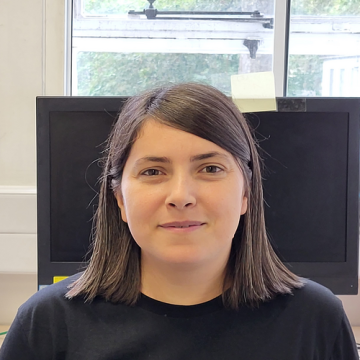
Dr Lila Allou
In the nucleus of each cell, a DNA molecule forms thread-like structures called chromosomes. Chromosomes are a collection of genes carrying genetic information (DNA). Chromosome mutations, which can modify the number or structure of chromosomes in a cell, are a complex phenomenon. While a gene mutation affects only a single gene or a segment of DNA on a chromosome, a chromosomal mutation alters the entire gene on that chromosome. These structural changes, known as structural variants, can lead to issues with the growth, development, and function of body systems. They can also disrupt the proteins produced by many genes along the chromosome and impact the noncoding DNA sequences located between genes.
“I have been fascinated by understanding the molecular mechanisms of genetic diseases since my early years at the university” says Lila. “I am really excited to start a research programme at the LMS, where my team will be able to focus on challenging questions to investigate the functional consequences of structural variants impacting the noncoding genome in rare diseases. A new research line of the group will aim to explore potential structural variant-derived therapeutic targets in cancer.”
The Genomic Variations and Disease Group will research exactly how changes that affect chromosome structure can cause problems with the growth, development, and function of systems in the body. They will investigate this using synthetic genomics – a technique to synthesize large DNA fragments and insert them into chromosomes within cells.
“By deepening our understanding of the consequences of changes that affect chromosome structure, we have the potential to make a significant impact,” says Lila “This knowledge could lead to the diagnosis of a substantial portion of the 300 million undiagnosed patients with rare diseases and the development of innovative therapeutic strategies for cancer patients.”
Lila joins the LMS from University College London Great Ormond Street Institute of Child Health (UCL GOS ICH), where she was a Senior Research Fellow. On starting her new position as Head of the Genetic Variations and Disease Group, Lila says: “What attracted me most about the LMS is the nurturing and collaborative scientific environment. Science becomes fun when supportive colleagues surround us. It is also an incredible opportunity to be in such a great place full of groundbreaking scientists.”
Welcome to the LMS, Lila!
